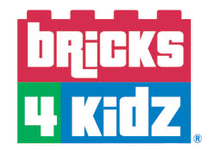For the average teen in high school, the evening study session is longer and includes more complex information to learn and master. And unlike when your children were younger, you just might not be up to offering hands-on help, even if your teen were to want it; after all, it’s been a long time since you tackled chemistry equations. Additionally, it’s reasonable to expect that your high school student should be in charge of her own study schedule. Even so, however, your teen can still benefit from your support as she works toward high school success.
Plan the week
At this stage, teens have a deeper, more involved role in their sports and activities. And because they’re busy, this is a great opportunity to drill in good planning habits. At the start of the week, sit down and go over her schedule with her. Review the activities coming up — practices, meets, gatherings, rehearsals, jobs — along with her academic calendar — tests, exams, reports, projects. You’re not going to do the planning for her, of course, but it would be helpful to task her with identifying what needs to be done and then scheduling it. Give her the opportunity to identify how long each task should take. Doing so will help you plan your week and her transportation needs, and in the long run you’ll also help her develop a disciplined approach to planning, which will reap dividends later.
Get focused
Now that you’ve planned when she’s going to study, make sure she’s able to get it done without distractions. And remember that it’s no longer practical to order her to shut off the electronics and buckle down with pencils, notebooks and texts, especially when some assignments have to be researched, completed and turned in electronically. The key is to minimize the online distractions. Have your teen test drive some apps that are designed to filter sites of their choice and promote concentration. (Some ideas can be found here.)
Offer the 10,000-foot view
Willpower and motivation will fuel your teen’s study session, but your student may find those traits in short supply if a topic or task seems dull or pointless. Sit down and listen to her as she talks through these frustrations, and show some empathy. What can help, as this blog explains, is discussing how these seemingly banal tasks fit into a bigger picture. That long view might be academic-oriented, for example, as certain concepts must be mastered before a student can be accepted by a college. Or, you could focus on the fact that, in a real-world context, it’s important to know history and master skills like written communication.
A powerful review
Here’s a useful tidbit to pass along to your teen: before bedtime, do a quick review. Studies show that people who do this before going to sleep are better able to recall the information than those who do not.
